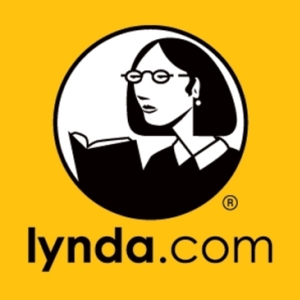 Patrons visiting the New York Public Library’s Science, Industry and Business Library (SIBL) now have free access to the entire catalog of more than 1,500 instructional online training videos offered by Lynda.com, thanks to a new partnership announced last week. For the first time, the service will be deployed in a public library setting across a range of IP addresses, allowing SIBL to offer Lynda.com access on more than 60 workstations throughout the building, without requiring any login information.
Patrons visiting the New York Public Library’s Science, Industry and Business Library (SIBL) now have free access to the entire catalog of more than 1,500 instructional online training videos offered by Lynda.com, thanks to a new partnership announced last week. For the first time, the service will be deployed in a public library setting across a range of IP addresses, allowing SIBL to offer Lynda.com access on more than 60 workstations throughout the building, without requiring any login information.
Many librarians are familiar with the fast-growing online learning company that offers courses on topics ranging from Javascript programming to successful salary negotiation techniques, all led by vetted instructors. About 200 different public libraries either offer their staff access to the service for training purposes, or offer patrons access using dedicated terminals, according to Nate Kimmons, vice president of Enterprise Marketing for Lynda.com. And, Lynda.com is currently available at about 400 college and universities, often campus-wide, with annual subscription prices based on an institution’s student, faculty and staff Full-Time-Equivalent (FTE) population.
But, SIBL is the first library “that we’ve really partnered with to figure out what the right model is for Lynda.com and [public] libraries,” Kimmons explained. “It was a unique situation for us to go in with a bigger library and make our courses available in a wide setting.”
The extensive course catalog is a good fit for SIBL, which has been working to expand services for patrons in three key areas: Job search and career development, small business startup and expansion, and personal financial education, said Kristin McDonough, director of the Business Library.
But it has been a challenge to build on the library’s existing schedule of hands-on courses on topics such career development, office software, and using the library’s databases. There are limits to staff time and expertise, yet the range of questions that patrons are posing continues to grow.
“We get so many people coming in from the design community or the startup community, who want to know more about Drupal or the cloud. Or they’ve just started a business and they want to know more about Photoshop for designing a logo,” McDonough said. “We know [Lynda.com] meets a need, and it is in the venerable tradition of the public library to offer as much information, advice, and training as we can, for free. Although someone, as an individual, could get a Lynda.com subscription at home for about $350 per year, this is just another extension of everything we offer as a public library, pro bono. It’s extending the expertise of an increasingly small staff at SIBL.”
Perfect Candidate
 Lynda.com approached NYPL about testing this new access model after visiting SIBL and taking note of existing continuing education programs, along with the heavy, continuous use of the library’s Job Search Central area and 150 public computer workstations, McDonough said.
Lynda.com approached NYPL about testing this new access model after visiting SIBL and taking note of existing continuing education programs, along with the heavy, continuous use of the library’s Job Search Central area and 150 public computer workstations, McDonough said.
The test includes nine dedicated Lynda.com terminals in the library’s Job Search Central area, along with a range of more than 50 non-fixed IP addresses that will allow access throughout the rest of the library, including SIBL’s electronic training center.
McDonough noted that SIBL years ago set up a split-access model for its workstations. Computers that offer Internet access will time out after one hour, while terminals that offer dedicated access to the library’s network databases never time out. Patrons can use these terminals to access training courses that last longer than one hour.
“Some of the classes are as zippy and punchy and short as 22 minutes,” she said. “But the more technical ones, on topics such as Drupal, photography, animation, can last as long as six hours, eight hours, or even eleven hours. Of course, the modules are chunked [into much shorter, manageable portions], but we loved the fact that someone who really has the time and energy could come into our Electronic Information Center, sit there and take a full course, and take the practice sessions and not budge from that workstation.”
Access is only available on-site, and patrons do not need to log in, so usage will be anonymous. As people use the service, Lynda.com plans to monitor the anonymous, aggregated data regarding which modules and courses are most frequently used.
During the test, which will last through the end of 2013, representatives from SIBL and Lynda.com “are going to be talking regularly about everything from their usage data—which they promised to offer us—to our anecdotal information about the kinds of questions we get, and the kind of uptake we get from the technology classes that we ourselves offer,” McDonough said.
The test went live only last week, but McDonough said that she had already fielded inquiries about access from representatives from technology meetup groups.
“Already, we’re finding that there are people in the technology community who want to partner with us by coming in and giving free [Lynda.com] classes to the public here at SIBL,” she said.


